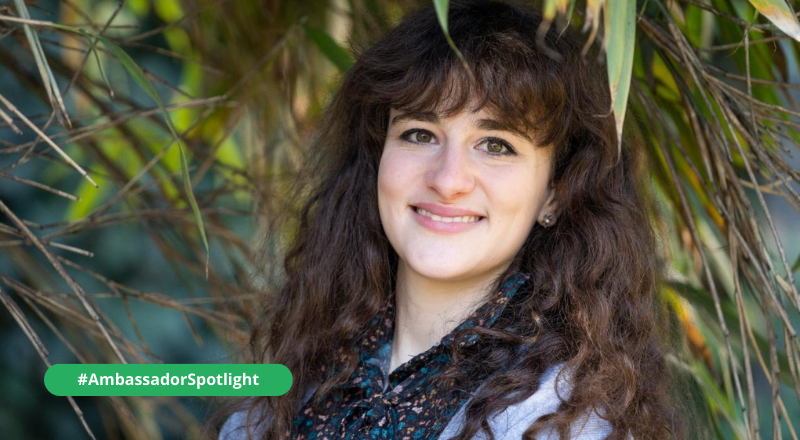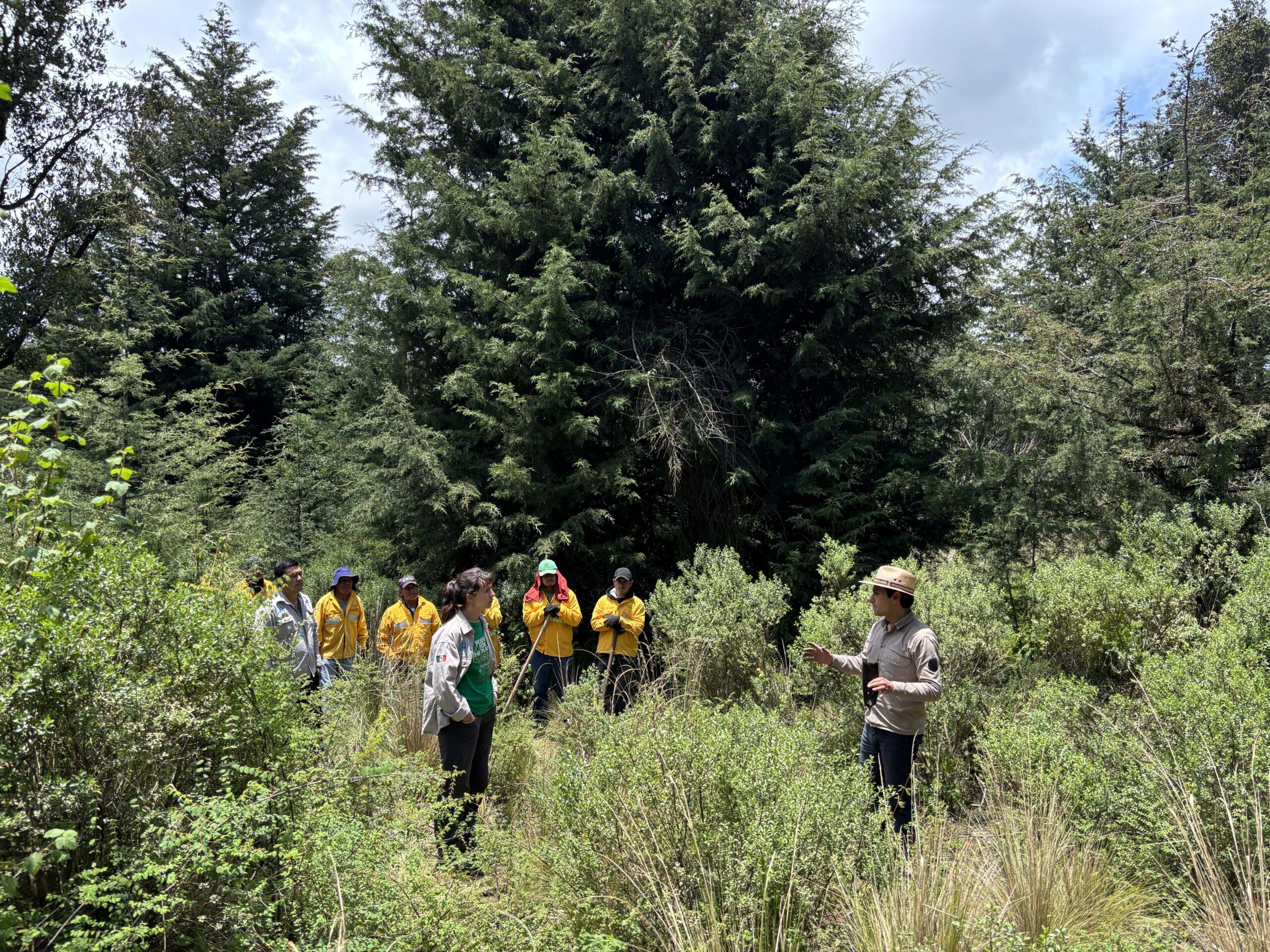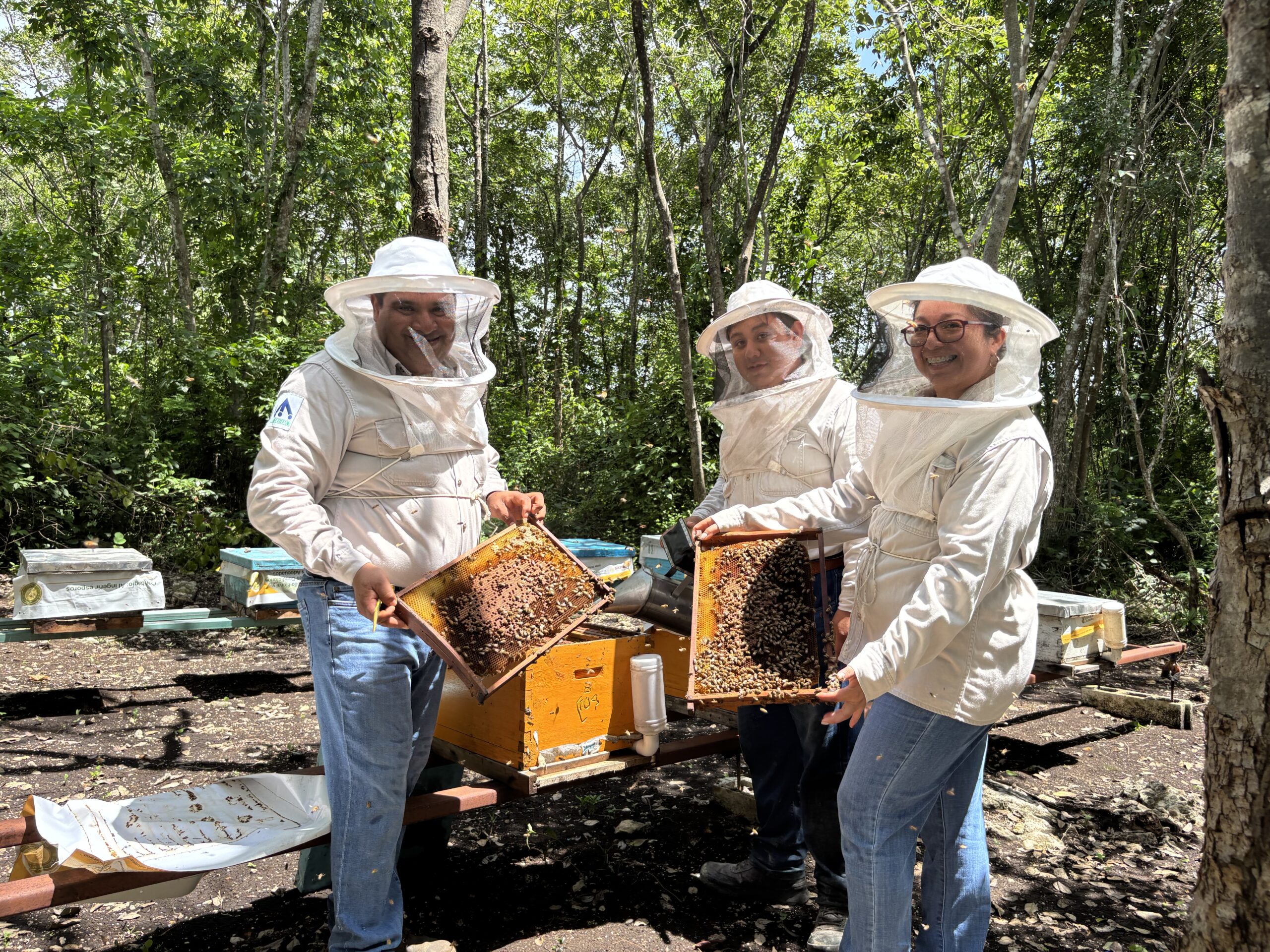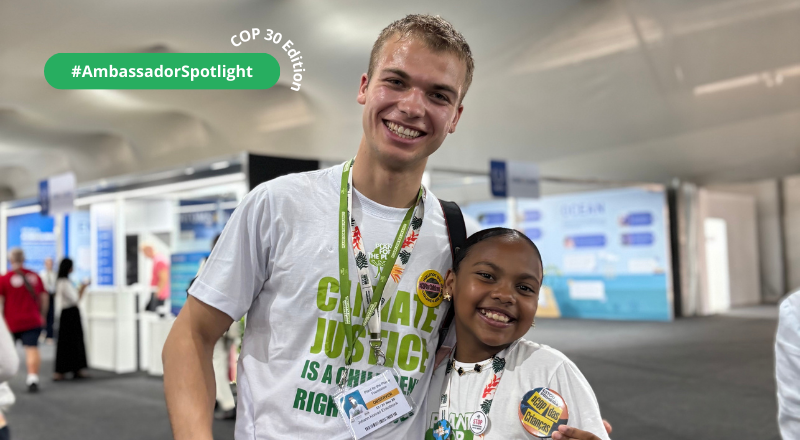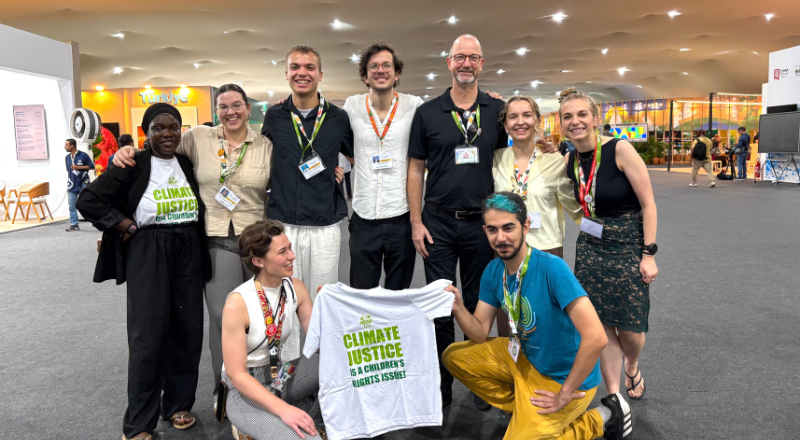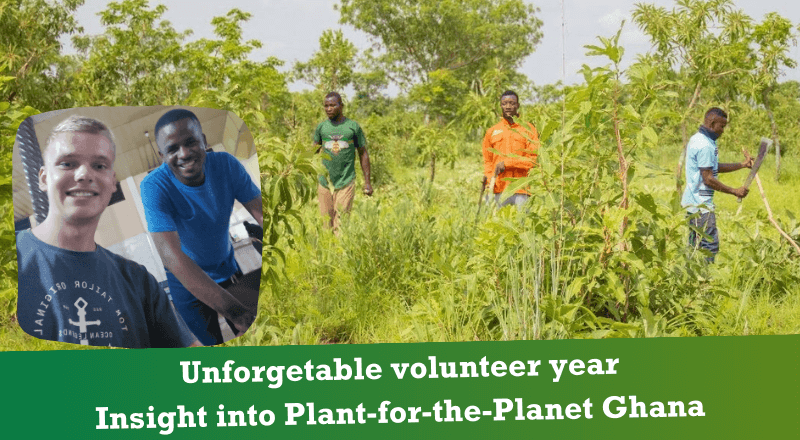
In June 2023, Arne Feldmann, a 20-year-old from Emsbüren, had the opportunity to visit Plant-for-the-Planet Ghana in the northeastern part of the country during his volunteer year from August 2022 to July 2023 in the Southwestern part of Ghana.
Plant-for-the-Planet Ghana is the national subsidiary of the Plant-for-the-Planet Foundation, founded in 2020. It is an independent nonprofit and non-governmental organization dedicated to climate education and forest restoration projects to address the interconnected global challenges of the climate crisis.
During his stay, Arne met the director, Mohammed Rabiu Dannakabu, and was deeply impressed by what he found. He shares his experiences in this blog article:
“From my first contact with Mohammed Dannakabu, the volunteer project leader, I was curious about what awaited me.
Upon my arrival, he warmly welcomed me and gave me a direct tour. The project is located in Bamboi, Savannah Region, in the western part of Ghana. I noticed that the entire region is incredibly sparsely populated, and Bamboi is situated directly on a river, the Black Volta.
With Mohammed, we first visited the seedling station. Here, all seedlings are raised for a year so that they can be planted in the following planting season. Eight different plants are cultivated, including a mix of indigenous plants and crops such as mango and cashew, which ultimately benefit the community in terms of yield.
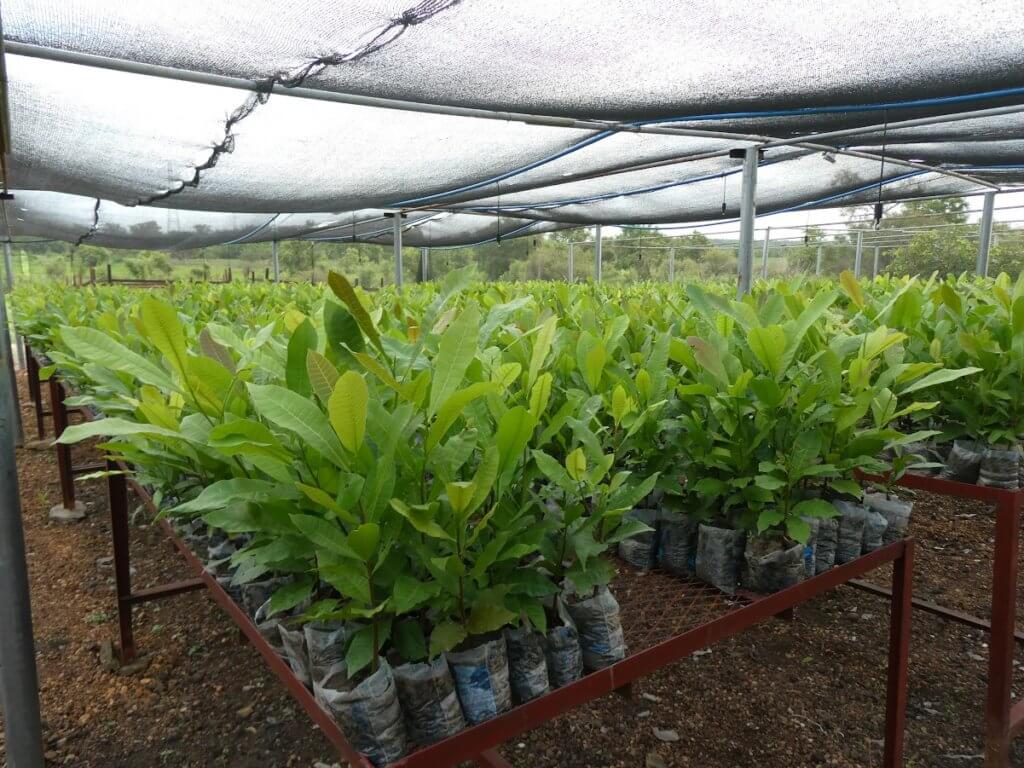
The seedling station is only about 200 meters away from the river. Water is pumped from there to the station, ensuring year-round water supply. All seedlings are placed on tables, serving two purposes: to protect them from heavy rain and floods and to save the backs of the staff.
Plant-for-the-Planet Ghana is structured as follows: there are eight full-time employees, along with three volunteers like Mohammed. The eight full-time employees are always on-site, each taking care of half of the seedlings and the already planted trees. Dannakabu is only present occasionally—his responsibilities include coordination, organization, and so on.
During the planting season, there are several “planting days” when many people from the community are hired as seasonal workers to support the planting effort.
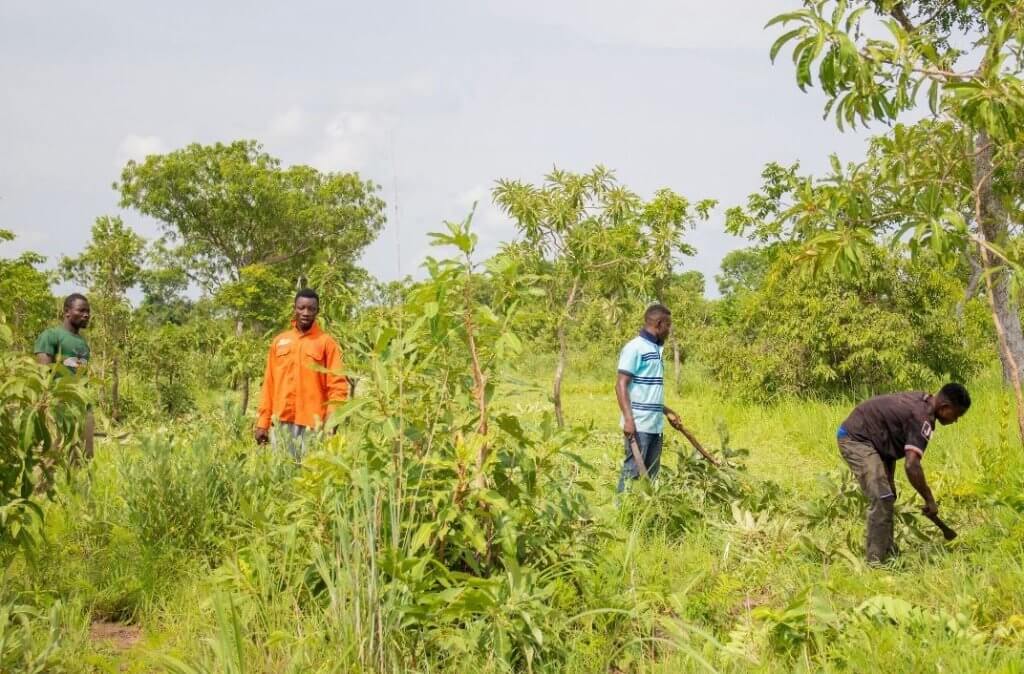
“‘They are also partially responsible for the care,’ Mohammed explains to me. Mohammed himself is, by the way, a very interesting personality. During my time there, he welcomed me very hospitably, and we had very interesting conversations. After more than 10 months in Ghana, I could actually learn a whole lot of new things that I didn’t know before. Mohammed is actively involved in sustainable rice business in Ghana and has lived in Germany and Spain. Therefore, the cultural exchange between us was very interesting, as we both know what life is like in Europe and Ghana. We both learned a lot of new things from each other in this regard.
Now back to the project. Plant-for-the-Planet Ghana has very ambitious goals. “In total, we want to bring back 10 million trees,” announces Mohammed, knowing that this goal is still a long way off. Only a small percentage of the current planting area has been planted. “Our calculations have shown that we can plant a million trees in this area. This is because in the savannah, the trees are not as closely spaced as in the rainforest. The trees must be planted at a greater distance to maintain the natural ecosystem,” explains Mohammed. This was exactly the impression I had when I looked over the 1000-hectare area. In the already planted area, all the trees had a certain distance from each other. Here, Mohammed also showed me that the project doesn’t always move forward: in the previous year, there was a fire that initially destroyed many seedlings. Through irrigation, a large part was saved afterward, so now it continues as usual. An update on the project’s progress is uploaded annually on the homepage.
The next steps involve forging larger partnerships with companies and other countries, as well as expanding outreach and fundraising efforts. For instance, this year sees a collaboration with the Czech Embassy, which is donating 2 x 5000 trees to two villages. Plant-for-the-Planet Ghana will be responsible for the cultivation and planting in this initiative.
Furthermore, there are plans to establish a dedicated office in Bamboi soon, which would facilitate better project coordination. Additionally, there are already social media channels in place, but they have not yet achieved the desired reach.
Mohammed is convinced of his project and the path he’s taking to involve the community and create much-needed employment. Therefore, he has ambitious goals and naturally hopes for more donations to further develop the project. During my visit, he showed me how Plant-for-the-Planet Ghana operates. Much of it is still under construction: a seedling station was not yet fully built, and an office for further development is planned but has not been implemented yet. As the project is relatively young, established in 2021, not many trees have been planted yet.
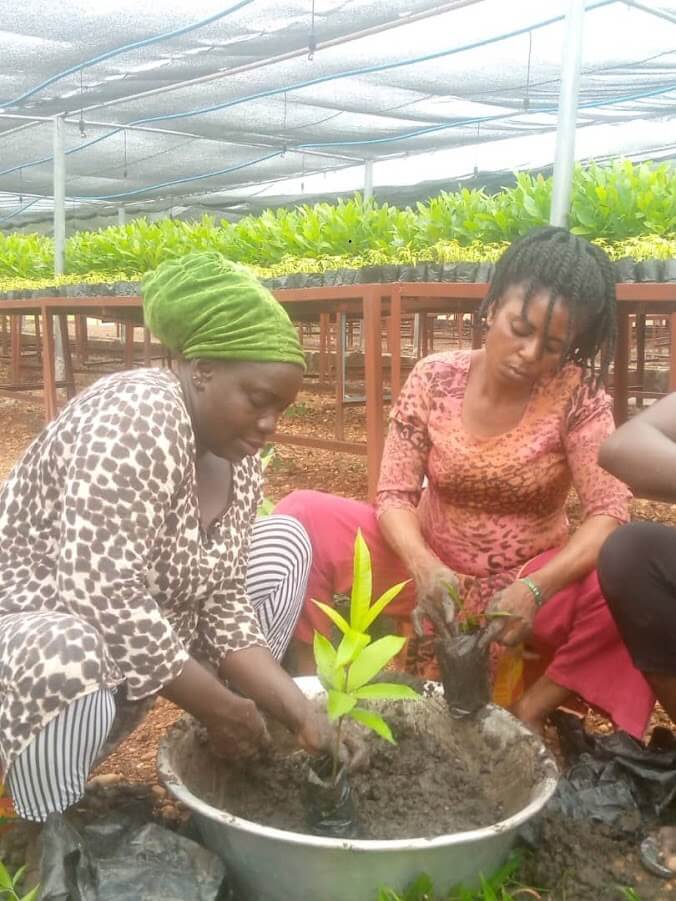
I believe that the project is absolutely meaningful, and the money is well invested. The 2€ per tree not only benefit the Earth and us through an additional tree that promotes biodiversity and can sequester CO2. No, it also benefits the employees at Plant-for-the-Planet Ghana, providing them with stable employment, as well as the community, which is involved in planting and care, and reaps the rewards of mango and cashew trees.
I am convinced that Mohammed Dannakabu is only at the beginning of the project. His determination to intensify efforts in the face of setbacks impressed me. Therefore, I am glad that I visited him and the project and have already supported it.
Hopefully, I can continue to help increase awareness in the future.
Plant-for-the-Planet expresses gratitude to Arne Feldmann for his commitment and for sharing his wonderful experiences.
